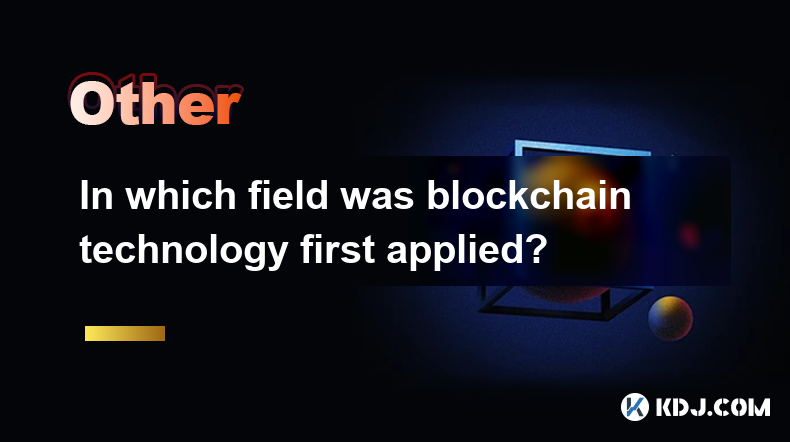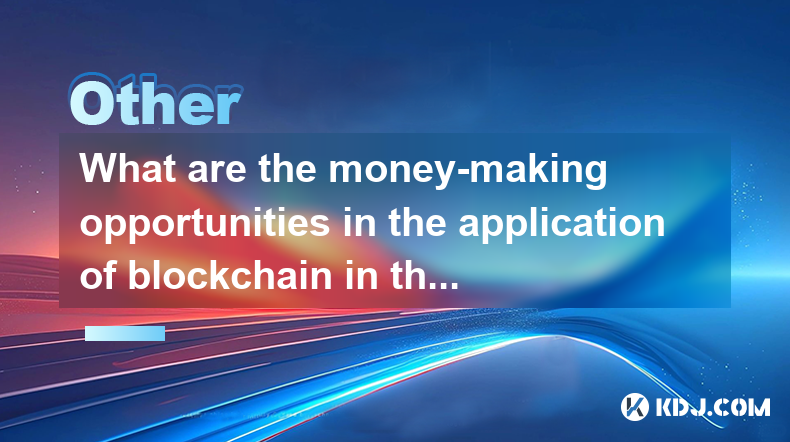-
 Bitcoin
Bitcoin $83,384.0103
-0.52% -
 Ethereum
Ethereum $1,808.8880
-0.27% -
 Tether USDt
Tether USDt $0.9996
-0.01% -
 XRP
XRP $2.1285
0.17% -
 BNB
BNB $590.6650
-1.02% -
 Solana
Solana $119.8001
-1.16% -
 USDC
USDC $1.0000
-0.01% -
 Dogecoin
Dogecoin $0.1672
-1.52% -
 Cardano
Cardano $0.6450
-2.14% -
 TRON
TRON $0.2358
-0.73% -
 UNUS SED LEO
UNUS SED LEO $9.1542
-0.44% -
 Chainlink
Chainlink $12.7548
-1.04% -
 Toncoin
Toncoin $3.2310
-2.48% -
 Stellar
Stellar $0.2517
-2.57% -
 Avalanche
Avalanche $17.3882
-4.28% -
 Shiba Inu
Shiba Inu $0.0...01223
-0.63% -
 Sui
Sui $2.1802
-2.73% -
 Hedera
Hedera $0.1601
-2.08% -
 Litecoin
Litecoin $82.2437
-2.91% -
 Polkadot
Polkadot $3.9303
-2.19% -
 MANTRA
MANTRA $6.2192
-1.01% -
 Bitcoin Cash
Bitcoin Cash $295.8200
-1.72% -
 Dai
Dai $1.0000
0.00% -
 Bitget Token
Bitget Token $4.4500
-1.78% -
 Ethena USDe
Ethena USDe $0.9991
0.00% -
 Pi
Pi $0.6522
50.32% -
 Monero
Monero $214.4466
-1.61% -
 Hyperliquid
Hyperliquid $11.5830
-3.12% -
 Uniswap
Uniswap $5.8275
-1.00% -
 OKB
OKB $54.4412
7.17%
In which field was blockchain technology first applied?
Blockchain's first practical application was managing Bitcoin's decentralized digital currency in 2008, showcasing its potential for secure, transparent peer-to-peer transactions before expanding into other sectors.
Mar 16, 2025 at 06:30 pm

Key Points:
- Blockchain's initial application wasn't in finance, but rather as a foundational technology for cryptocurrencies.
- Satoshi Nakamoto's Bitcoin whitepaper outlined its use for a decentralized digital currency system.
- Early adoption focused on facilitating peer-to-peer transactions without intermediaries.
- While Bitcoin marked the first significant application, blockchain's potential extended beyond cryptocurrencies almost immediately.
- The inherent security and transparency of blockchain attracted attention from various sectors shortly after its inception.
In Which Field Was Blockchain Technology First Applied?
The genesis of blockchain technology is inextricably linked to the creation of Bitcoin in 2008. Satoshi Nakamoto's groundbreaking whitepaper, "Bitcoin: A Peer-to-Peer Electronic Cash System," introduced a novel approach to digital currency management. This system utilized a distributed ledger technology, later termed "blockchain," to record and verify transactions without relying on a central authority. Therefore, the field in which blockchain technology first saw practical application was the realm of digital currencies and cryptocurrency transactions.
This initial application was revolutionary. Bitcoin's blockchain addressed the longstanding challenges of double-spending and trust in digital transactions. By decentralizing the control over the currency and its transactional history, it established a new paradigm for secure and transparent financial interactions. The peer-to-peer nature of the system eliminated the need for intermediaries like banks or payment processors, further strengthening its appeal within the nascent cryptocurrency community.
The early years following Bitcoin's launch witnessed a focused effort on perfecting and expanding the core functionality of the blockchain technology within the cryptocurrency space. Various altcoins emerged, each building upon or modifying the foundational principles established by Bitcoin. These innovations expanded the capabilities of blockchain, exploring different consensus mechanisms, transaction speeds, and smart contract functionalities, all within the cryptocurrency ecosystem.
While cryptocurrency remains a prominent application area, the potential of blockchain technology quickly transcended the confines of digital currencies. The inherent properties of blockchain – its immutability, transparency, and security – made it an attractive solution for a wide range of applications beyond cryptocurrency. However, the very first practical application, the one that truly launched blockchain into the world, was unequivocally the creation and management of Bitcoin's decentralized digital currency.
The early adopters of Bitcoin and other cryptocurrencies were primarily interested in the potential for financial liberation and circumventing traditional financial systems. The novelty of a decentralized, trustless system was a significant draw, especially for individuals who were wary of centralized institutions or lacked access to traditional banking services. This early focus on financial applications cemented the initial association of blockchain with cryptocurrency.
However, it's crucial to distinguish between the first application and the primary applications. While the first real-world implementation was in cryptocurrency, the technology's potential quickly became apparent in other fields. The very features that made it successful for Bitcoin – its security, transparency, and immutability – proved valuable in a wide array of industries.
The decentralized nature of the blockchain also held immense appeal. The inherent resistance to censorship and single points of failure made it a compelling technology for those seeking greater control over their data and transactions. This appeal resonated across various sectors, leading to exploration of blockchain applications well beyond the cryptocurrency sphere.
The fundamental strength of blockchain lies in its ability to create a shared, verifiable, and immutable record of transactions or data. This characteristic is not limited to financial transactions; it extends to supply chain management, voting systems, healthcare records, and countless other areas. However, it was the cryptocurrency application that initially showcased these strengths, setting the stage for its wider adoption.
The initial application of blockchain in the cryptocurrency field laid the foundation for its future development and broader applications. It served as a proof of concept, demonstrating the viability and potential of the technology. While subsequent applications have diversified, the role of cryptocurrency in the early stages of blockchain's evolution remains undeniably pivotal.
Frequently Asked Questions:
Q: Was Bitcoin the only cryptocurrency using blockchain initially?
A: While Bitcoin was the first prominent cryptocurrency to utilize blockchain technology, other cryptocurrencies emerged shortly after, also employing blockchain for managing transactions. However, Bitcoin's early adoption and influence significantly shaped the development of the blockchain technology within the cryptocurrency space.
Q: How did blockchain's use in cryptocurrency lead to its broader adoption?
A: The success of Bitcoin and other cryptocurrencies demonstrated the practical applications of blockchain's core features: security, transparency, and decentralization. This proof of concept fueled interest from other sectors seeking similar solutions for their own challenges.
Q: What are some of the key differences between early blockchain implementations and those used today?
A: Early blockchain implementations, primarily focused on cryptocurrencies, were often simpler and less scalable than modern versions. Today, we see more sophisticated consensus mechanisms, improved scalability solutions, and the integration of smart contracts, significantly expanding blockchain’s capabilities.
Q: Why was the decentralized nature of blockchain so important in its early applications?
A: The decentralized nature was critical for establishing trust and security in a system without reliance on central authorities. This was particularly crucial in the financial context, where trust in intermediaries is paramount. This trustless nature became a core selling point of the technology as it moved beyond cryptocurrency.
Disclaimer:info@kdj.com
The information provided is not trading advice. kdj.com does not assume any responsibility for any investments made based on the information provided in this article. Cryptocurrencies are highly volatile and it is highly recommended that you invest with caution after thorough research!
If you believe that the content used on this website infringes your copyright, please contact us immediately (info@kdj.com) and we will delete it promptly.
- Coinbase CEO Brian Armstrong Calls for Stablecoin Legislation to Enable On-Chain Interest
- 2025-04-06 12:10:12
- Trump's New Secondary Tariff Strategy Lacks Finesse, Involves Millions
- 2025-04-06 12:10:12
- Tether Expands Bitcoin Holdings with New Purchase of 8,888 BTC
- 2025-04-06 12:05:12
- Tether Holdings Ltd. (USDT) Buys the Dip, Acquiring 8,888 BTC
- 2025-04-06 12:05:12
- Tether Expands Bitcoin Holdings With $735M Purchase of 8,888 BTC
- 2025-04-06 12:00:12
- Solaxy (SOLX) Leads the Charge as Inflows Return to Crypto Investment Products
- 2025-04-06 12:00:12
Related knowledge

Is the ranking of Chinese blockchain apps real and reliable?
Apr 04,2025 at 09:01pm
The ranking of Chinese blockchain apps has become a topic of interest for many in the cryptocurrency community, as it provides insights into the popularity and adoption of blockchain technology within China. However, the reliability and authenticity of these rankings are often questioned. This article aims to delve into the factors that influence these ...

What are the future development trends of blockchain game development?
Apr 03,2025 at 05:00am
Blockchain technology has revolutionized various industries, and gaming is no exception. As we look to the future, several trends are set to shape the development of blockchain games. These trends not only promise to enhance the gaming experience but also to integrate blockchain technology more seamlessly into the gaming ecosystem. Let's explore these t...

What are the high-return opportunities for blockchain investments?
Apr 05,2025 at 02:35pm
Blockchain technology has revolutionized the financial world, offering numerous high-return investment opportunities. These opportunities span various sectors within the cryptocurrency ecosystem, including cryptocurrencies, decentralized finance (DeFi), non-fungible tokens (NFTs), and blockchain startups. Each of these areas presents unique risks and re...

What are the maintenance costs of blockchain system development?
Apr 03,2025 at 06:07pm
The maintenance costs of blockchain system development are multifaceted and depend on various factors. These costs can include technical maintenance, security updates, infrastructure expenses, and personnel costs. Understanding these elements is crucial for anyone planning to develop or maintain a blockchain system. Technical MaintenanceTechnical mainte...

What are the money-making models of blockchain games?
Apr 04,2025 at 02:00pm
Blockchain games have emerged as a revolutionary way for players to earn real money while enjoying their favorite pastime. These games leverage the power of blockchain technology to create unique money-making models that benefit both the players and the developers. In this article, we will explore the various money-making models of blockchain games and ...

What are the money-making opportunities in the application of blockchain in the field of Internet of Things?
Apr 05,2025 at 10:35pm
The integration of blockchain technology with the Internet of Things (IoT) presents numerous money-making opportunities. Blockchain, with its decentralized and secure nature, can revolutionize how IoT devices interact, manage data, and conduct transactions. This article will explore various avenues where entrepreneurs, developers, and investors can capi...

Is the ranking of Chinese blockchain apps real and reliable?
Apr 04,2025 at 09:01pm
The ranking of Chinese blockchain apps has become a topic of interest for many in the cryptocurrency community, as it provides insights into the popularity and adoption of blockchain technology within China. However, the reliability and authenticity of these rankings are often questioned. This article aims to delve into the factors that influence these ...

What are the future development trends of blockchain game development?
Apr 03,2025 at 05:00am
Blockchain technology has revolutionized various industries, and gaming is no exception. As we look to the future, several trends are set to shape the development of blockchain games. These trends not only promise to enhance the gaming experience but also to integrate blockchain technology more seamlessly into the gaming ecosystem. Let's explore these t...

What are the high-return opportunities for blockchain investments?
Apr 05,2025 at 02:35pm
Blockchain technology has revolutionized the financial world, offering numerous high-return investment opportunities. These opportunities span various sectors within the cryptocurrency ecosystem, including cryptocurrencies, decentralized finance (DeFi), non-fungible tokens (NFTs), and blockchain startups. Each of these areas presents unique risks and re...

What are the maintenance costs of blockchain system development?
Apr 03,2025 at 06:07pm
The maintenance costs of blockchain system development are multifaceted and depend on various factors. These costs can include technical maintenance, security updates, infrastructure expenses, and personnel costs. Understanding these elements is crucial for anyone planning to develop or maintain a blockchain system. Technical MaintenanceTechnical mainte...

What are the money-making models of blockchain games?
Apr 04,2025 at 02:00pm
Blockchain games have emerged as a revolutionary way for players to earn real money while enjoying their favorite pastime. These games leverage the power of blockchain technology to create unique money-making models that benefit both the players and the developers. In this article, we will explore the various money-making models of blockchain games and ...

What are the money-making opportunities in the application of blockchain in the field of Internet of Things?
Apr 05,2025 at 10:35pm
The integration of blockchain technology with the Internet of Things (IoT) presents numerous money-making opportunities. Blockchain, with its decentralized and secure nature, can revolutionize how IoT devices interact, manage data, and conduct transactions. This article will explore various avenues where entrepreneurs, developers, and investors can capi...
See all articles





















































































